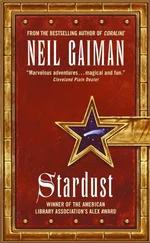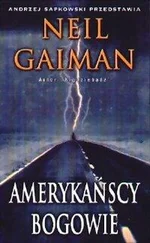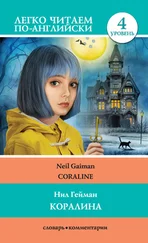Smoke Mirrors - Neil Gaiman
Здесь есть возможность читать онлайн «Smoke Mirrors - Neil Gaiman» весь текст электронной книги совершенно бесплатно (целиком полную версию без сокращений). В некоторых случаях можно слушать аудио, скачать через торрент в формате fb2 и присутствует краткое содержание. Жанр: на английском языке. Описание произведения, (предисловие) а так же отзывы посетителей доступны на портале библиотеки ЛибКат.
- Название:Neil Gaiman
- Автор:
- Жанр:
- Год:неизвестен
- ISBN:нет данных
- Рейтинг книги:3 / 5. Голосов: 1
-
Избранное:Добавить в избранное
- Отзывы:
-
Ваша оценка:
- 60
- 1
- 2
- 3
- 4
- 5
Neil Gaiman: краткое содержание, описание и аннотация
Предлагаем к чтению аннотацию, описание, краткое содержание или предисловие (зависит от того, что написал сам автор книги «Neil Gaiman»). Если вы не нашли необходимую информацию о книге — напишите в комментариях, мы постараемся отыскать её.
Neil Gaiman — читать онлайн бесплатно полную книгу (весь текст) целиком
Ниже представлен текст книги, разбитый по страницам. Система сохранения места последней прочитанной страницы, позволяет с удобством читать онлайн бесплатно книгу «Neil Gaiman», без необходимости каждый раз заново искать на чём Вы остановились. Поставьте закладку, и сможете в любой момент перейти на страницу, на которой закончили чтение.
Интервал:
Закладка:
Gordon began to snore. She kissed him, gently, on the cheek, and said, "Shhh." He stirred, and was quiet, but did not wake. She snuggled against him and soon fell back into sleep herself.
After lunch the following day, while in conversation with an importer of Tuscan marble, Gordon looked very surprised and reached a hand up to his chest. He said, "I'm frightfully sorry about this," and then his knees gave way, and he fell to the floor. They called an ambulance, but Gordon was dead when it arrived. He was thirty-six years old.
At the inquest the coroner announced that the autopsy showed Gordon's heart to have been congenitally weak. It could have gone at any time.
For the first three days after his death, Belinda felt nothing, a profound and awful nothing. She comforted the children, she spoke to her friends and to Gordon's friends, to her family and to Gordon's family, accepting their condolences gracefully and gently, as one accepts unasked-for gifts. She would listen to people cry for Gordon, which she still had not done. She would say all the right things, and she would feel nothing at all.
Melanie, who was eleven, seemed to be taking it well. Kevin abandoned his books and computer games, and sat in his bedroom, staring out of the window, not wanting to talk.
The day after the funeral her parents went back to the countryside, taking both the children with them. Belinda refused to go. There was, she said, too much to do.
On the fourth day after the funeral she was making the double bed that she and Gordon had shared when she began to cry and the sobs ripped through her in huge ugly spasms of grief, and tears fell from her face onto the bedspread and clear snot streamed from her nose, and she sat down on the floor suddenly, like a marionette whose strings had been cut, and she cried for the best part of an hour, for she knew that she would never see him again.
She wiped her face. Then she unlocked her jewellery drawer and took out the envelope and opened it. She pulled out the cream-coloured sheet of paper and ran her eyes over the neatly typed words. The Belinda on the paper had crashed their car while drunk and was about to lose her driving licence. She and Gordon had not spoken for days. He had lost his job almost eighteen months earlier and now spent most of his days sitting around their house in Salford. Belinda's job brought in what money they had. Melanie was out of control: Belinda, cleaning Melanie's bedroom, had found a cache of five and ten pound notes. Melanie had offered no explanation for how an eleven-year-old girl had come by the money, had just retreated into her room and glared at them, tight-lipped, when quizzed. Neither Gordon nor Belinda had investigated further, scared of what they might have discovered. The house in Salford was dingy and damp, such that the plaster was coming away from the ceiling in huge crumbling chunks, and all three of them had developed nasty bronchial coughs.
Belinda felt sorry for them.
She put the paper back in the envelope. She wondered what it would be like to hate Gordon, to have him hate her. She wondered what it would be like not to have Kevin in her life, not to see his drawings of airplanes or hear his magnificently tuneless renditions of popular songs. She wondered where Melanie-the other Melanie, not her Melanie but the there-but-for-the-grace-of-God Melanie-could have got that money and was relieved that her own Melanie seemed to have few interests beyond ballet and Enid Blyton books.
She missed Gordon so much it felt like something sharp being hammered into her chest, a spike, perhaps, or an icicle, made of cold and loneliness and the knowledge that she would never see him again in this world.
Then she took the envelope downstairs to the lounge, where the coal fire was burning in the grate, because Gordon had loved open fires. He said that a fire gave a room life. She disliked coal fires, but she had lit it this evening out of routine and out of habit, and because not lighting it would have meant admitting to herself, on some absolute level, that he was never coming home.
Belinda stared into the fire for some time, thinking about what she had in her life, and what she had given up; and whether it would be worse to love someone who was no longer there, or not to love someone who was.
And then, at the end, almost casually, she tossed the envelope onto the coals, and she watched it curl and blacken and catch, watched the yellow flames dancing amidst the blue.
Soon the wedding present was nothing but black flakes of ash which danced on the updrafts and were carried away, like a child's letter to Santa Claus, up the chimney and off into the night.
Belinda sat back in her chair, and closed her eyes, and waited for the scar to blossom on her cheek.
And that is the story I did not write for my friends' wedding. Although, of course, it's not the story I did not write or even the story I set out to write when I began it, some pages ago. The story I thought I was setting out to write was much shorter, much more fablelike, and it did not end like that. (I don't know how it did end originally any more. There was some kind of ending, but once the story was underway the real ending became inevitable.)
Most of the stories in this volume have that much in common: The place they arrived at in the end was not the place I was expecting them to go when I set out. Sometimes the only way I would know that a story had finished was when there weren't any more words to be written down.
Reading the Entrails: A Rondel
Editors who ask me for stories about "…anything you want. Honest. Anything at all. Just write the story you always wanted to write" rarely get anything at all.
In this case, Lawrence Schimel wrote asking for a poem to introduce his anthology of stories about foretelling the future. He wanted one of the verse forms with repeating lines, like a villanelle or a pantoum, to echo the way we inevitably arrive at our future.
So I wrote him a rondel about the pleasures and perils of fortune-telling and prefaced it with the bleakest joke in Through the Looking-Glass. Somehow it seemed a fine starting point for this book.
I'd been having a bad week. The script I was meant to be writing just wasn't happening, and I'd spent days staring at a blank screen, occasionally writing a word like the and staring at it for an hour or so and then, slowly, letter by letter, I'd delete it and write and or but instead. Then I'd exit without saving. Ed Kramer phoned and reminded me that I owed him a story for an anthology of stories about the Holy Grail which he was editing with the ubiquitous Marty Greenberg. And seeing nothing else was happening and that this story was living in the back of my mind, I said sure.
I wrote it in a weekend, a gift from the gods, easy and sweet as anything. Suddenly I was a writer transformed: I laughed in the face of danger and spat on the shoes of writer's block. Then I sat and stared glumly at a blank screen for another week, because the gods have a sense of humour.
Several years ago, on a signing tour, someone gave me a copy of an academic paper on feminist language theory that compared and contrasted "Chivalry", Tennyson's "The Lady of Shalott", and a Madonna song. I hope one day to write a story called "Mrs Whitaker's Werewolf" and wonder what sort of papers that might provoke.
When I do live readings, I tend to start with this story. It's a very friendly story and I enjoy reading it aloud.
Nicholas Was…
Every Christmas I get cards from artists. They paint them themselves or draw them. They are things of beauty, monuments to inspired creativity.
Every Christmas I feel insignificant and embarrassed and talentless.
Читать дальшеИнтервал:
Закладка:
Похожие книги на «Neil Gaiman»
Представляем Вашему вниманию похожие книги на «Neil Gaiman» списком для выбора. Мы отобрали схожую по названию и смыслу литературу в надежде предоставить читателям больше вариантов отыскать новые, интересные, ещё непрочитанные произведения.
Обсуждение, отзывы о книге «Neil Gaiman» и просто собственные мнения читателей. Оставьте ваши комментарии, напишите, что Вы думаете о произведении, его смысле или главных героях. Укажите что конкретно понравилось, а что нет, и почему Вы так считаете.









